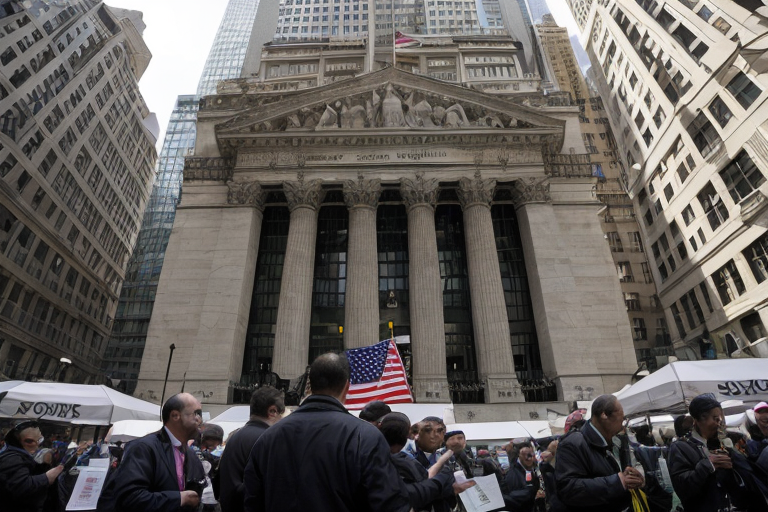A recent article by Bloomberg discusses the relationship between financial conditions and the broader economy, specifically regarding the current state of the US stock market and the Federal Reserve’s efforts to combat inflation. Although the stock market has seen a significant rally, with equity capitalization increasing by approximately 38% of GDP over the past five months, this increase in wealth is not uniformly distributed among Americans due to wealth inequality. While wealthy individuals are spending more, the impact is too small to be a major concern for Federal Reserve Chair Jerome Powell, as the majority of Americans are struggling with rising costs of living. The cost of living has increased significantly since the COVID-19 pandemic, with spending on essential items such as housing, food, gas, utilities, and healthcare reaching nearly 65% of US household expenditure. This burden falls disproportionately heavily on the lowest income group, with the proportion of such costs reaching 80.4%. Furthermore, Americans aged 70 and older have amassed $15 trillion in stocks, almost seven times the total for those under 40, while those labeled Black and Hispanic each have less than $0.3 trillion in equity holdings. As a result, the wealth effect, which is based on the theory that rising stock prices lead to higher levels of consumption, appears to be having little impact on less affluent Americans. Despite this, optimism around further stock gains is still high, while consumer sentiment on the economy and personal finances has sunk to nearly a two-year low. Therefore, even if the stock market continues to perform well, it is unlikely that this will have a significant impact on everyday Americans’ moods. In contrast, anger over rising prices is much more apparent, particularly regarding the costs of groceries, travel, and hotel accommodations.

Stock Market Rally Fails to Boost Consumer Confidence Amid Wealth Inequality and Inflation Woes
•
Recent Posts
Advertisement
Advertisement example


Leave a Reply